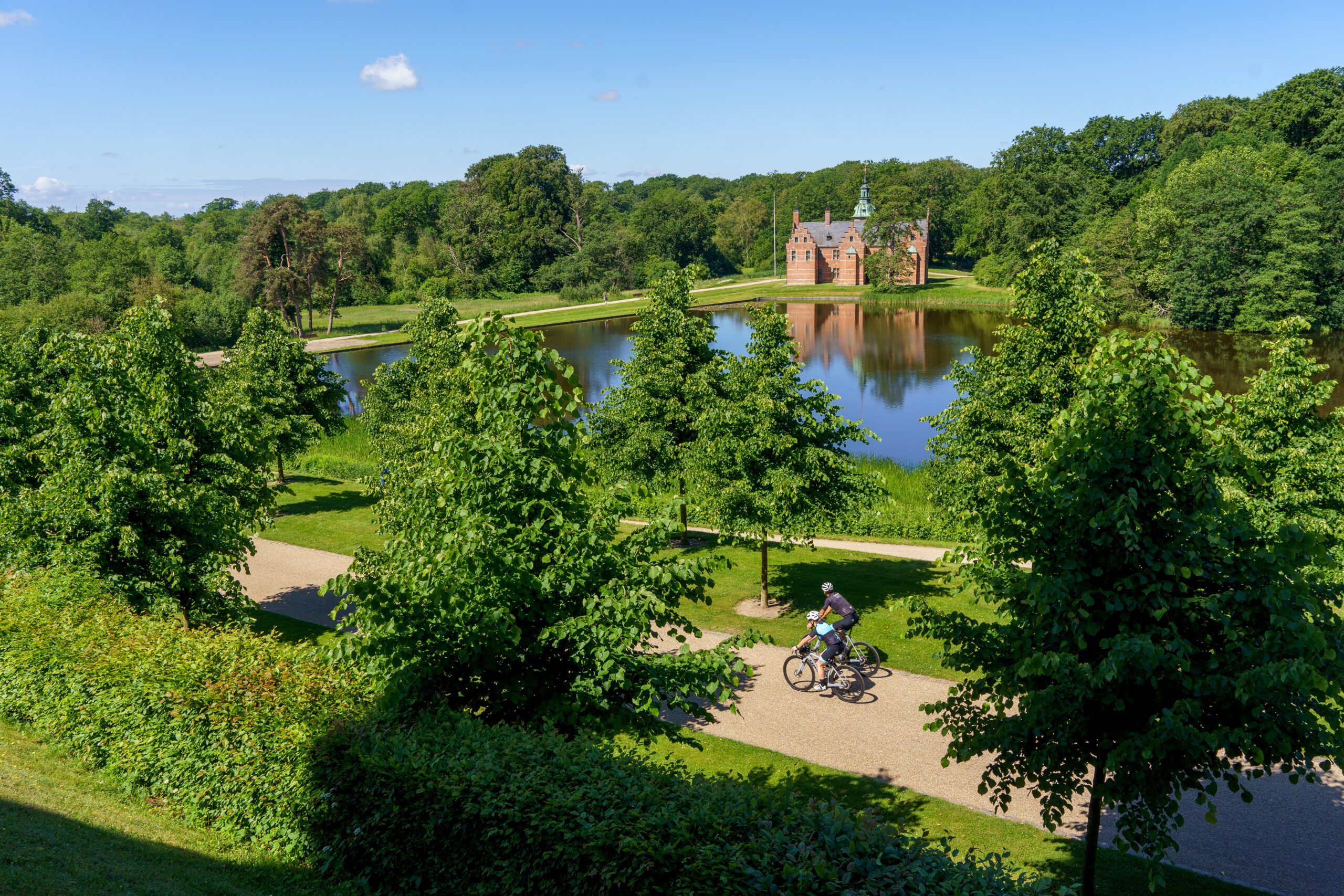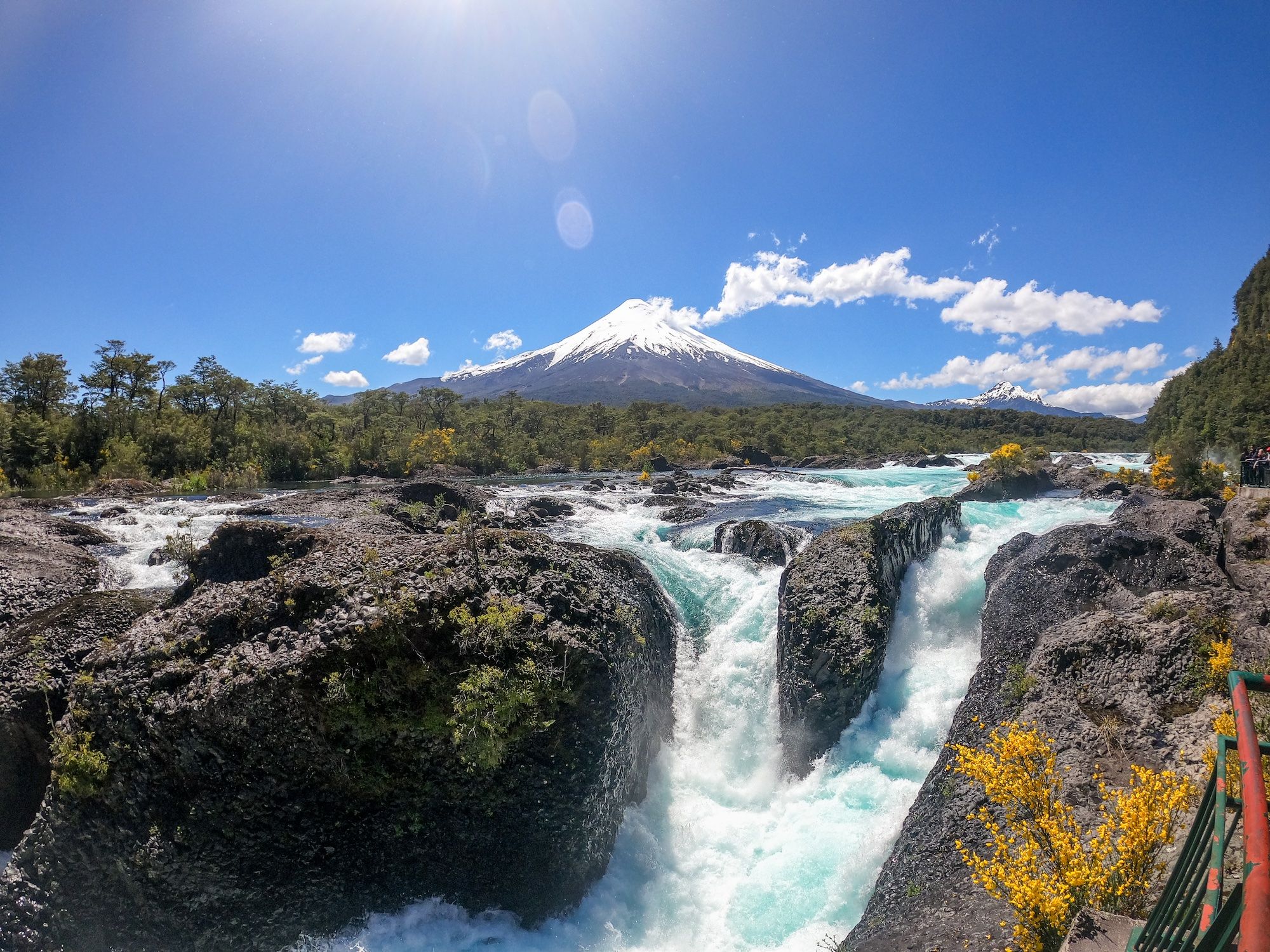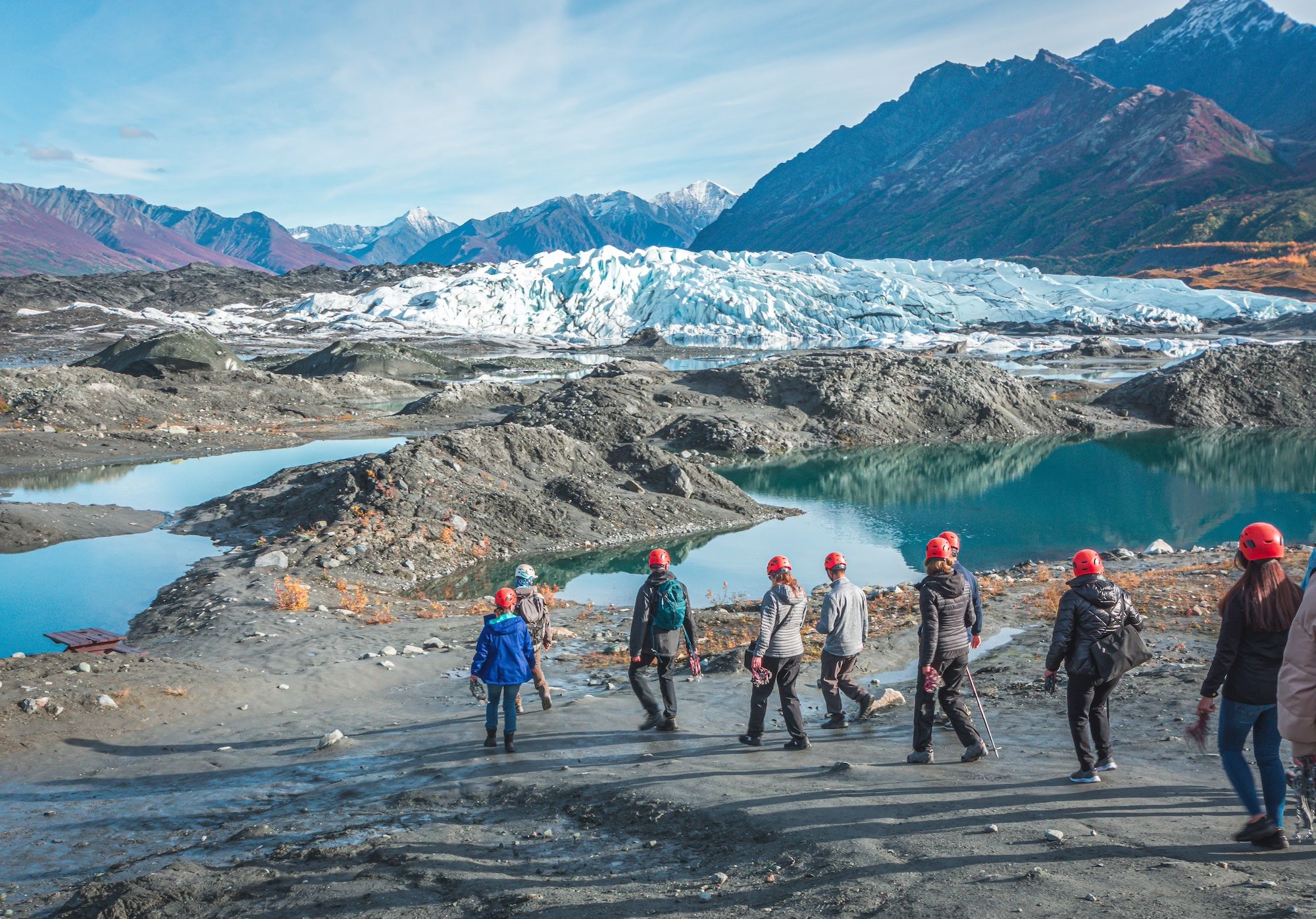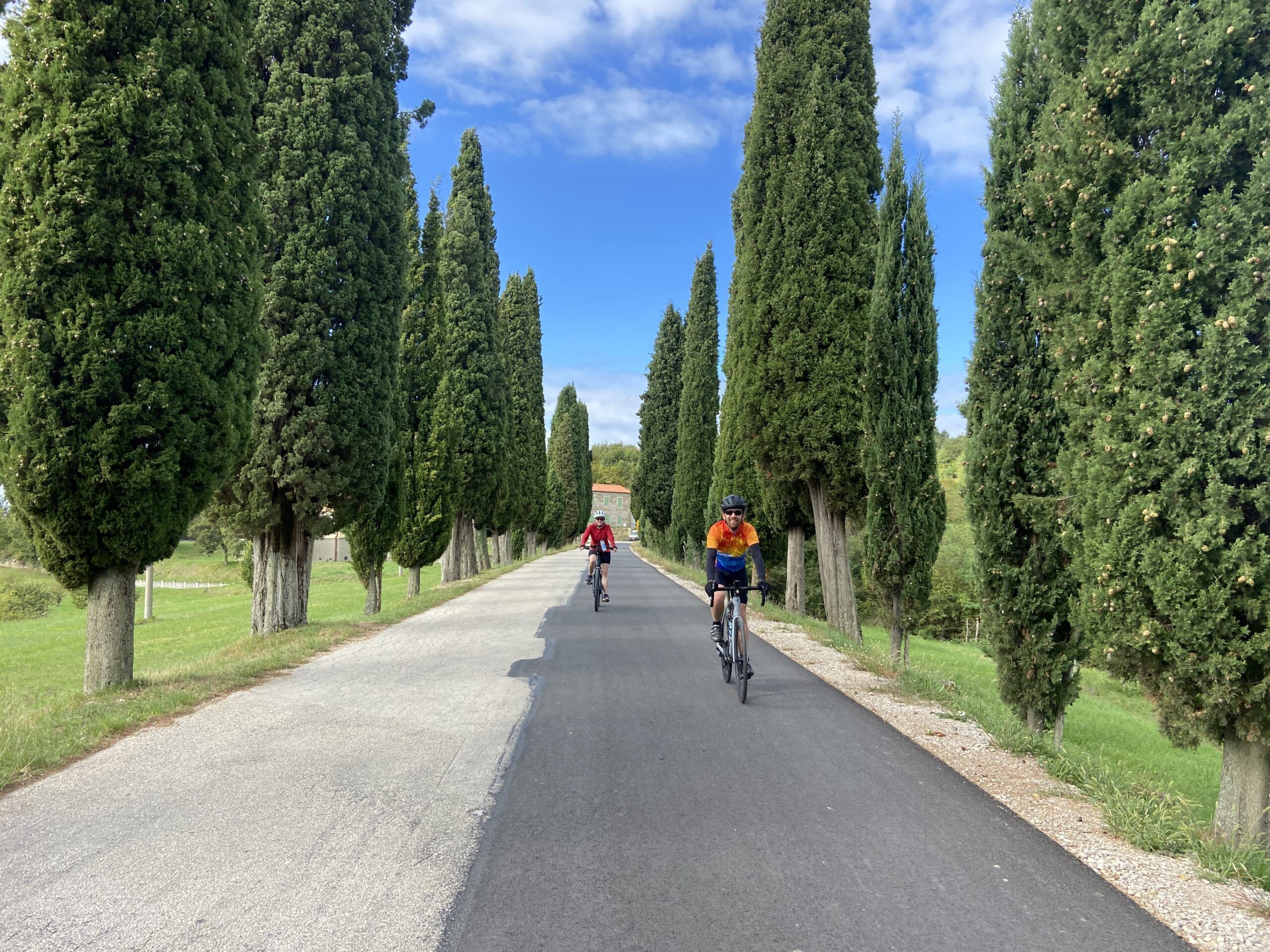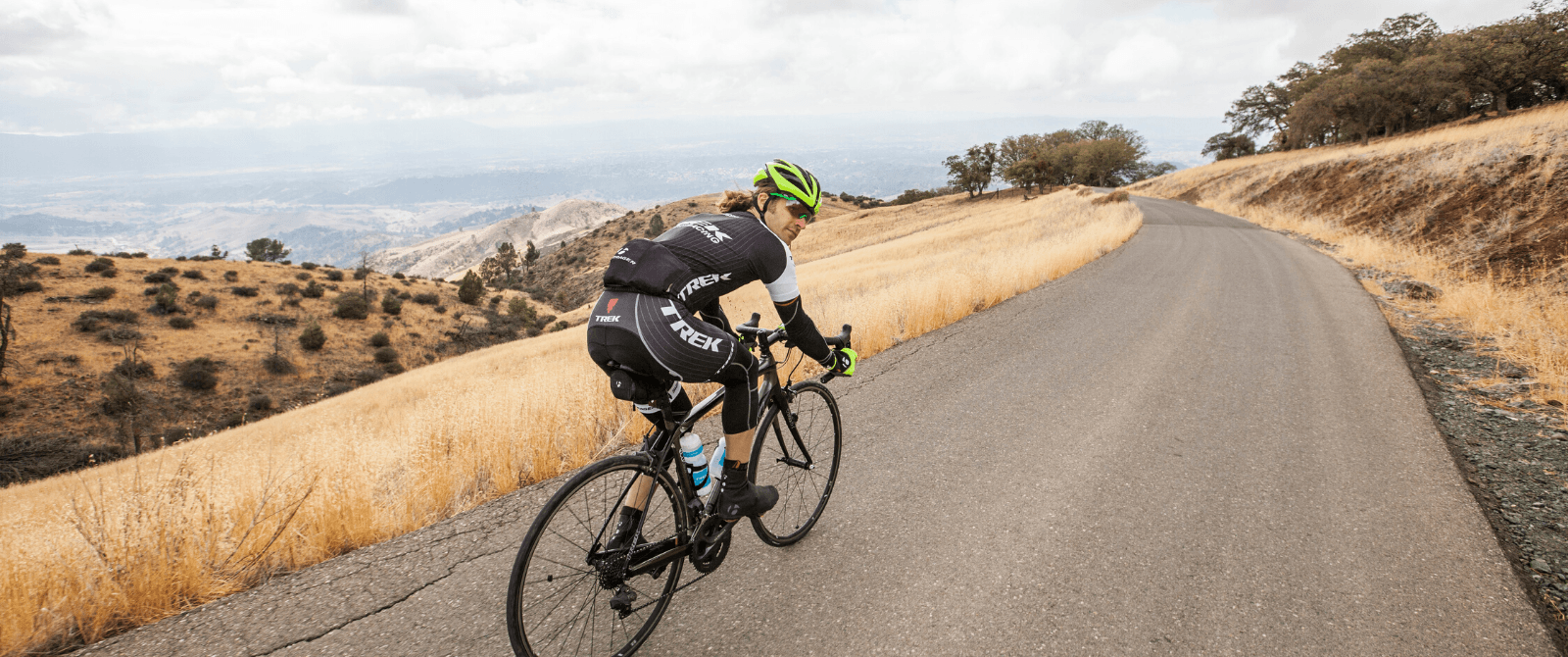
When you’ve been guiding with Trek Travel for over a decade, you’re bound to have seen quite a few changes, experienced incredible destinations, and made enough memories to last a lifetime. To get firsthand knowledge of how things have evolved for guides over the years, we chatted with Hershy, who has been with us since 2005. Here’s what he had to say…

What was your first trip like?
My first trip was the Tour de France in 2005. Our team was working all three weeks of the tour, and each trip was sold out. We had a massive tour bus with a trailer, two Trek Travel vans, and four guides on the trip. I think our guest count was around 30 guests per trip. The first week we started in Brittany and finished in the Loire Valley. Our second week was in the Alps, and our third week started in the Pyrenees and finished in Paris. The first stage ended on the island of Noirmoutier, where we were standing on the finish line of the Time Trial. Due to the road closure, we took a boat back to our hotel, toasting the start of a glorious Tour. Just like the Tour de France, our trip finished in Paris. On the last day of the Tour, we awoke just before sunrise, and rode our bikes around the quiet Parisian streets. We did laps around the Arc de Triomphe and Longchamps before making our way to the Eiffel Tower, with our final route taking us along the famed cobblestones of the Champs-Elysees. Later in the day, we watched the pros finish their epic race, rushing past at lightning speeds on the cobblestones. Every day was spectacular during the Tour, riding the routes before the pros, seeing and being part of the spectacle, and finishing the month with amazing new friends, and memories that will last a lifetime.
Nowadays, we are running more race trips all over the globe. We truly keep improving on all our years of history, experience, and research.

How has guiding changed over the years?
Back in 2005, our main business happened during the Tour de France. We had trip offerings across the USA and Europe, yet the bulk of our business revolved around the Tour. At the time, guides were based in the Netherlands. Over the years, we moved our EU operations from the Netherlands to Provence, and then eventually to Girona where our EU operations are based today. Housing an influx of guides was always challenging, and given the amount of trips we would run for the Tour, we were always in need of finding enough space. One year, we rented little bungalows on a beach in the Netherlands. Another year, we rented a hotel in the Alps, and yet another year, we were all based in the city of Lourdes, France.
Back then, whenever we would leave the Netherlands to start a trip in another country, we would always make a special stop for beer in Belgium. Why you may ask? They have the world’s best beer of course. I can remember leaving Paris one year after the Tour de France with a group of guides. After being on the road for three weeks, we were all half asleep. The drivers ensured we would stop in Belgium to purchase beer. In those days, we did not have a GPS. We relied on maps and a Road Atlas (and the hope that our navigator could use them). In essence, we all had to be excellent map readers & navigators. At times, this made for some unique conversations, especially when we would miss an exit or a needed turn. On this particular trip, after picking up some good Belgium beer, we got back on the autoroute. Unfortunately, before we knew it, our four-hour drive became an eight-hour drive because our driver did not realize that we entered the highway heading in the wrong direction. Thanks to traffic, the inability to turn around right away, and tolls, it made for an even longer drive. But hey, at least we had good beer to share with everyone when we finally reached our destination.
Thankfully today, our guides do not need to plan drives so far in advance because we can simply turn on our GPS, and it will guide us (or reroute us) to our destination.
Technology has definitely changed over the years, and in some ways made the guides life easier. It used to be quite a task finding a phone line to dial up an international modem to connect with the office for information or updates. Now, we just connect to WiFi, and we have access to get information, make phone calls, and check email on the go. Cell phones in general have changed greatly in terms of capabilities, and having the ability to stay on one SIM card to travel around Europe is hugely beneficial. We used to have a little bag with our multiple SIM cards. At one point in time, I had a SIM card for the Netherlands, Belgium, France, Spain, Italy, Croatia, The UK, Ireland, and the USA. Whenever we crossed from one country to the next, I would have to remove the old SIM card and insert a new one. Today, our phones are far more powerful than even our computers used to be. From built in apps like WAZE for driving, to RIDE with GPS for cycling, and maps for finding a specific restaurant, our lives have been enhanced. But truth be told, having a good old Michelin Map, that highlights in Green a section of beautiful road to cycle upon in France, is definitely missed. As is having a good navigator to help plan the drive, figure out where to get gas, and decide where to stay for the night.

What makes Trek Travel a unique place to work?
Trek Travel being a small and privately owned company has allowed us to make changes rather quickly. From the beginning, guides all knew each other, and we would encourage each other to always improve. I feel like we all helped each other to continually grow and reach for excellence in all areas. From learning about the history of an area, to learning to use technology, or how to became a better athlete, guide, and coach, we all encouraged each other to be the best we could be. This is probably one of the most valuable qualities that Trek Travel instilled in the guide team back when I was hired in 2005 and continues to instill today. And as Trek Travel has hired more people over the years, I would say that we have experience and wisdom from older guides, and have infused that with the energy and creativity of the new guides to continually provide better trips for our guests. The camaraderie inspired by our leadership in the office, combined with the teamwork and passion of the guides in the field has helped to make Trek Travel what it is today. It is also the reason why so many of us have been here since the beginning.
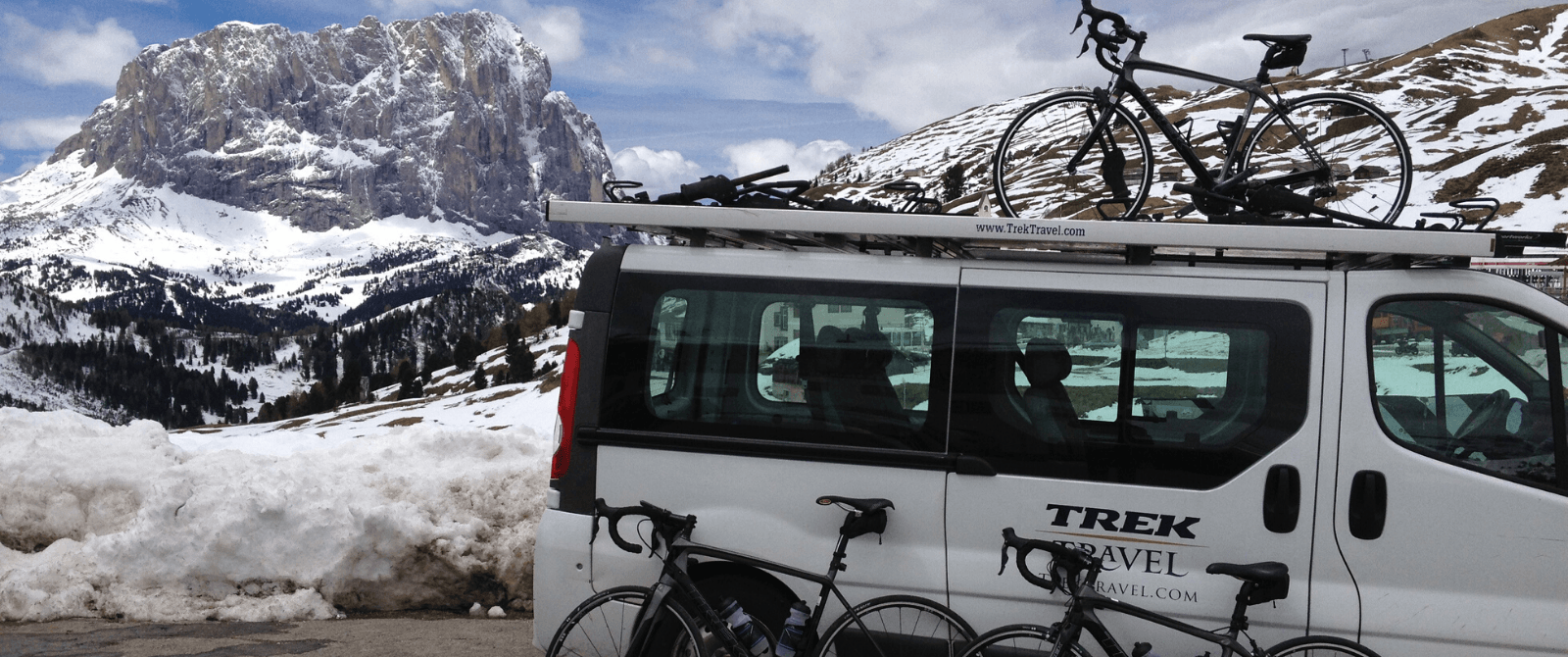
How has your role changed over the years at Trek Travel?
From 2005 to 2011 I was full-time seasonally with Trek Travel, working in the spring, summer, and fall. My schedule typically consisted of starting and finishing my season in Napa & Sonoma, with my summer spent in France at the Tour. Some years I was at the Giro d’Italia, and on the rare occasion, I was able to lead a few other trips in Europe. Starting in 2012, I went full time with Trek Travel and found myself mainly guiding in Europe through 2016. Over this time, I became a trip expert for various regions, and often I would help to set up and design new trips. Now, I am a part-time guide and am ready to jump in and help when needed.

Do you have any awesome guests who have traveled with you time and time again?
What I love most about our Trek Travel guests is that so many of them travel with us again and again. Many of the guests who have traveled with me in the past remain in contact with me today. When we are together again, we are able to recount the memories and stories of the past. For me to speak specifically about one guest over the years would do a disservice to them all. All of my pasts guests have left indelible impressions that make me smile. A few memories that come to mind include cycling the last few kilometers of Alp d’Huez on a closed road before the pros at the Tour de France, boat rides on the Adriatic sea, spinning through Napa Valley, and riding through the red rocks of Zion National Park. Besides spending time together on the bike, there is nothing better than hearty dinners sharing stories and getting to know the guests personally. What I appreciate and love is how many of these guests continue to be part of my life today.
